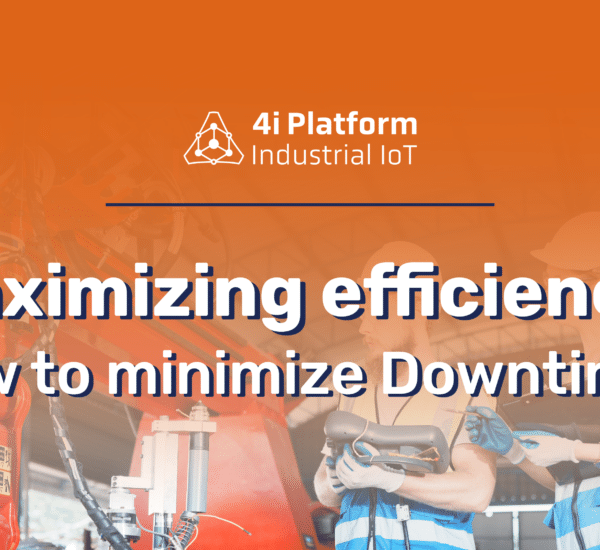Although the Merriam-Webster Dictionary may not yet have the actual title for the Internet of Things, the term has been growing steadily to the point that has started to infiltrate a movement on the power sector.
Since Mitsubishi Hitachi Power sector and system (MHPS), a plant power-generation company, opened its first of four remote monitoring centers in 1999 to monitor the gas turbines at power plants, it has not stopped growing.
Nowadays, IoT has helped the power sector by allowing gas turbines and other pieces that drive generators and generate electrical energy, to operate at more than 1,600°C (2912°F) and rotate at more than 3,000 rpm.
This makes them distinctly vulnerable to temperature and centrifugal stress. In addition, they can trip and cause the plant to stop. Therefore, IoT has become crucial to keep running safely in the power sector.
Big Data and Big Advantages for the power sector
MHPS has accumulated a lot of historical data over nearly two decades of monitoring turbines. This includes variables like:
- Fuel composition
- Equipment age
- Usage patterns
In this way, MHPS now can leverage its data thanks to advancements in the Internet of Things (IoT), to optimize overall power plant operation, and proactively increase operational flexibility.
MHPS now oversees hundreds upon hundreds of power sector equipment and turbine units around the globe. Remote monitoring is now just one of its long-term service agreements (LTSA) with customers.
However, remote monitoring is not enough. We now go beyond monitoring and use the accumulated data to suggest ways to make plants more competitive for customers.
MHPS uses sophisticated AI (artificial intelligence) and machine learning-based analytics to do this. They also mine big data to listen to the voice of plants.
This includes predicting and preventing problems in the short and long term. It can include sending an urgent email with priority response guidance when it detects any abnormality. By making devising strategies, there will be a decrease in costly plant overhauls and extend the plant power’s life by many years.
What is the result of all this feedback? Companies can improve an assortment of key performance indicators through significant cost savings, increased revenue generation opportunities, or better environmental performance.
A Unbeatable Combination of Data and Individuals
MHPS is a strong competitor because of the type of company it is. It has been manufacturing power plant-related equipment for over a century and has an in-depth understanding of equipment and plants at the physical level.
The analytics technicians are well-versed in the details of the machine. The field service engineers of the company are equally capable of interpreting signs of wear and tear such as discoloration or cracks that they discover during their on-site inspections.
Sometimes, the data can recommend possibilities but not provide a complete answer. Both can be used to provide a more precise prognosis.
In this way, even if data and physical equipment fail to give the right answer, the secret to power plant performance improvement is in the management and operations of the plant.
This is when MHPS’s passion for customer service comes into play.
Through regular face-to-face meetings and questionnaires, the company strives to understand its customers.
This allows the company to be certain it fully understands its customers’ goals and can tailor its services accordingly.
Complex Times: Solutions
MHPS’s new digital platform for power plants was launched under the MHPS–TOMONI brand in March 2017. “TOMO NI” in Japanese, means “together”, and the name reflects the care for their customers.
MHPS’s hybrid philosophy is combining data and human insights, and working closely with power plant operators.
Operators appreciate having an experienced partner in a complex world like the power sector and power generation. The life of an operator was easy before the deregulation of the sector.
Furthermore, they ran their plants 24/7/365 and they know that they will be paid a fixed price for their output.
Monitoring the plant power was about ensuring they could do it
The challenges in a deregulated world are more complex and varied. Generators must produce electricity at affordable prices, but they also have to be flexible enough to respond quickly to spikes in demand.
Further complexity comes from the challenges of having to manage fluctuations in renewables’ ways to maintain grid stability or complying with regulatory requirements regarding emissions.
Engineer shortage? It’s not a problem
The greatest challenge for power plant operators is the shortage of experienced managers in developed countries. As older employees retire, there are no qualified candidates to replace them.
MHPS modifies its service offerings to compensate for individual customer gaps. The company is optimistic that its digital systems will be able to fill the gap in skilled operators and keep them running competitive plants.
Mitsubishi Heavy Industries Group is dedicated to applying digital solutions to new realities in the 21st Century.
If you want to learn more about the power sector and how to incorporate IoT solutions into your company, contact us!





